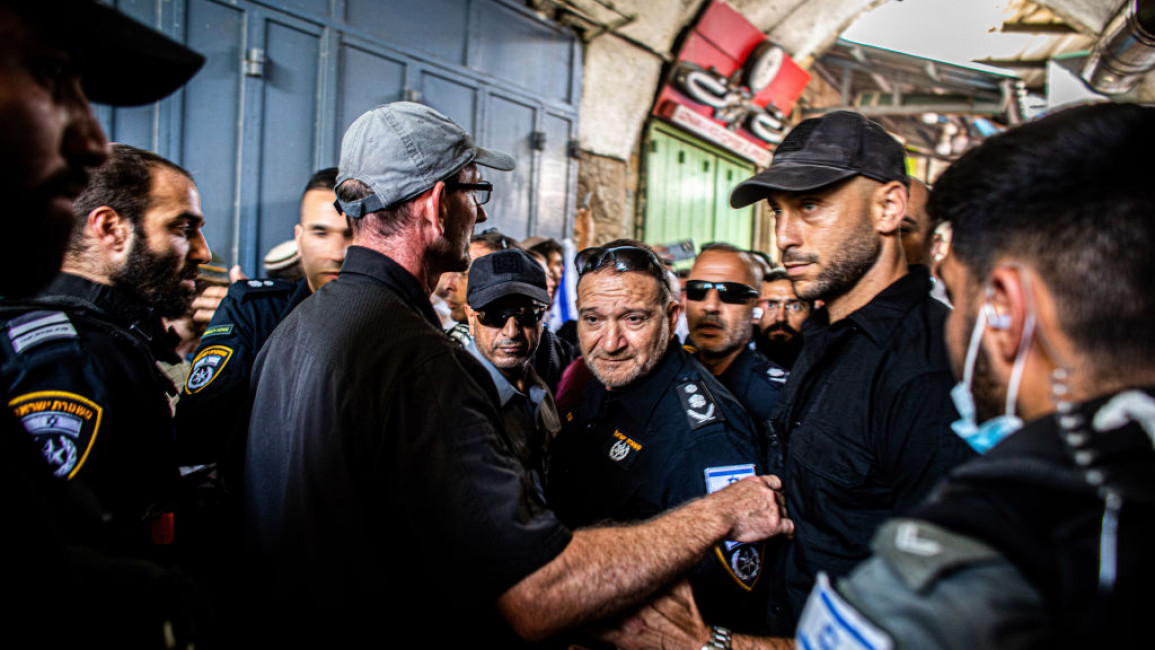Israel's controversial police chief begins five-day visit to Morocco with security officials
Israel's police chief arrived in Morocco on Monday for his first official visit to North Africa since Rabat's controversial normalisation agreement nearly two years ago.
Following an official visit to UAE in February, Police Commissioner Kobi Shabtai headed Monday to Rabat for a five-day visit to discuss security cooperation with his Moroccan counterparts.
Shabtai has faced criticism for numerous Israeli police abuses against Palestinians, as well as his conclusion that the assault of mourners during journalist Shireen Abu Akleh's funeral was a "complex event".
Morocco and Israel have grown closer since the two countries officially normalised ties in 2020, causing outrage in the Arab world.
Shabtai will meet senior Moroccan police and national security officials, visit law enforcement facilities, and Jewish sites, Israeli police said in a statement
"The police commissioner and senior Moroccan officials will discuss bolstering operational, intelligence, and investigative cooperation in order to strengthen the relationship between the countries and the police," the statement said.
The Israeli police chief will also lay a wreath at the Rabat Mausoleum, the resting place of Morocco's past kings.
Israel's head of police intelligence and the head of the Israel Police Foreign Affairs Unit will accompany Shabtai during his visit to Rabat.
Since normalising ties in December 2020, Israeli and Moroccan officials have bolstered relations despite Israel's continued occupation of the West Bank and oppression of Palestinians.
So far, more than six Israeli officials and ministers have visited Rabat to discuss further cooperation with the North African kingdom.
Morocco's Foreign Minister Nasser Bourita has visited Israel only once during this period for the Negev summit in March.
His "bromance" with Yair Lapid, Israel's now prime minister, triggered a huge controversy in the kingdom.
Morocco was the fourth Arab state to normalise ties with Israel in 2020 following a US-led push.
Rabat established official relations with Israel after the signing of the Oslo peace agreement in 1993 but cut ties following the 2000 Palestinian Second Intifada.
The two countries had reportedly kept cooperation under the table during this period due to strong anti-Israeli sentiments in Morocco.
The emergence of official ties late in December 2020 was sealed following a US-brokered deal that saw Washington recognise Rabat's sovereignty over the Western Sahara region.
At the time, many Moroccans bitterly accepted the deal, including the pro-Palestine Justice and Development Party (PJD), viewing it as a patriotic duty that could help end the decades-long Western Sahara conflict in Morocco's favour.
However, Israel’s recent mounting crimes against Palestinians have revived anti-normalisation sentiments in Morocco, David Govrin, the Head of the Israeli Liaison Office in Morocco, recently confessed.
In an interview with The Jerusalem Post, a day after Israel killed Palestinian journalist Shireen Abu Akleh, Govrin said such events "made the development of ties [between Morocco and Israel] more difficult".
"The Moroccan public deeply identifies with the Palestinians. It's a sensitive matter," he said.
The Israeli diplomat blamed "fake and twisted" reporting of events in "Arabic news".
"The public in Morocco gets most of its information in French and Arabic, and a lot of the reports, especially in Arabic, are lies that incite and provoke," he said.
Leading independent human rights groups agree that Palestinians are systematically oppressed by Israel and that the country is an "apartheid state".



